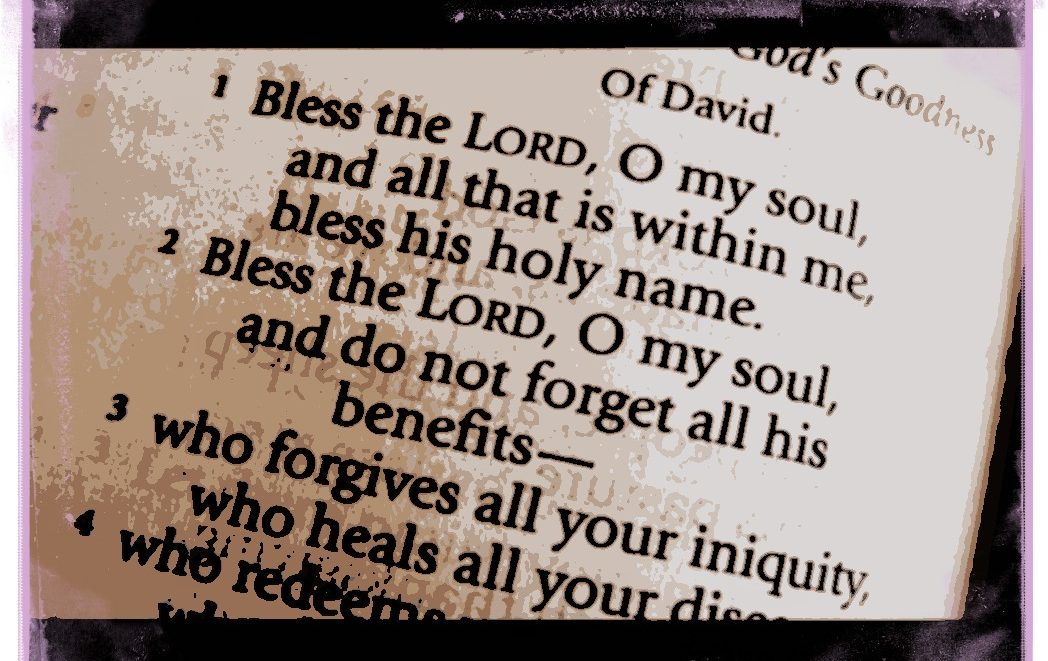
We are now over 18 months from our launch of Locking Arms in December of 2014. We have seen God’s steadfast love to us personally and in many areas of ministry growth. We are experiencing his love and the anointing of his Spirit as we dwell together in unity as an authentic faith community of men. Thank you for your partnership in this ministry.
I have been memorizing Psalm 103 in relation to a challenge that our good brother Jon Kolb gave to us at our May retreat. It has been a great blessing to me, recalling it while commuting, praying it while walking our Golden Retriever Max, and chewing on small portions of it in times of quiet. Four times in this great Psalm David describes God’s amazing affection for us as steadfast love. Psalm 103:11 is an example…“As high as the heavens are above the earth, so great is his steadfast love towards those who fear him.” If we pick our Sun for example, the closest star at 93 million miles, he wants us to have a visual reminder everyday of how great his love is toward us as his covenant people. Steadfast love is the language of covenant. Israel knew covenant love only through Yahweh their covenant God. He loved to describe himself as the God of Abraham, Isaac, and Jacob (As he did to Moses in Exodus 3:14-15) because it affirmed his covenant faithfulness throughout generations.
We see very few covenant examples of love. We have become a culture where relationships are much more “consumer” driven than “covenant” driven. Relationships are viewed more out of a lens of perceived personal benefit and usefulness like our relationship with our dry cleaner rather than covenant commitment as in marriage. Sadly, even marriage has become for many a “consumer” driven relationship where vows spoken in church are not backed up by a life-long commitment. God’s vows to his bride, the church, are forever.
In Genesis Chapter 15, God affirmed his promise to make Abraham’s offspring as numerous as the stars in the heavens. Earlier he had promised that through his seed all nations would be blessed (Galatians 3:16 interprets as Christ). Then he sealed his oath by passing through the cut animals in the form of a blazing torch. This was the custom of how covenants were enacted between two parties except in this case God alone passed through them. The Hebrew word for covenant, berith, means “to cut.” His action declaring that the consequences of covenant unfaithfulness (disobedience) would be taken completely by God to insure its permanence. Covenant is the unconditional, language and costly action of love God portrayed to Abraham (Through his testing with Isaac his son- Genesis 22) and fulfilled in the coming of Christ (John 3:16). This covenant vow was fulfilled by Christ in the cross after centuries of covenant unfaithfulness by Israel. “Christ redeemed us from the curse of the law by becoming a curse for us, for it is written: “Cursed is everyone who is hung on tree.” Galatians 3:13
The qualifying phrase included in 103:11 along with 103:13 (used elsewhere in v. 17) to those who “fear him” needs explanation. The fear of the Lord is not the fear of condemnation and judgment since we know in the new covenant that Christ has taken our condemnation and the penalty of sin in our place on the cross (Romans 3:23-25, 8:1-2). John, the beloved disciple, makes this point clear. “There is no fear in love. But perfect love drives out fear..”
(1 John 4:18) The perfect love of Christ drives away the fear of judgment in his children forever. The fear of God then must be something different. The fear of God is a reverence and awe that recognizes his holiness (Isaiah 6:1-7), his sovereign power (Isaiah 40:21-31) and his mighty works in creation, the cross, and the resurrection (Colossians 1:15-20). This fear of God comes to us through faith in Jesus Christ not by our merit. Faith “sees” in the cross both the holiness of God’s judgment against sin poured out upon his Son and the steadfast, covenant love of Jesus. The love that took our place of judgment to redeem us from sin’s penalty and power over us. The great African-American spiritual hymn, “Were You There,” emphasizes the reverent fear that costly grace should invoke in us.
Were you there when they crucified my Lord? (Were you there?)
Were you there when they crucified my Lord?
O Sometimes it causes me to tremble! tremble! tremble!
Were you there when they crucified my Lord? 1
This sense of trembling awe over all that Christ endured for us must lead us to deep gratitude and covenant faithfulness to our bridegroom. God wants us to walk in the full assurance of his steadfast love even when we have failed him. He is faithful and just to forgive us of our sins when we confess them (1 John 1:9). The spiritual consequence-broken fellowship with God is restored. He is unchanging towards us. We will however experience the physical, emotional, and relational consequences of sin, that is not taken away. To walk in the fear of the Lord is to honor Christ’s great sacrifice for us in the cross by laying down our lives for Him in surrender and obedience.
1. “Were You There.” First published in William Eleazar Barton’s 1899 Old Plantation Hymns.
Photo Credit: http://blog.centralaz.com/wp-content/uploads/2012/09/psalm-103.jpg